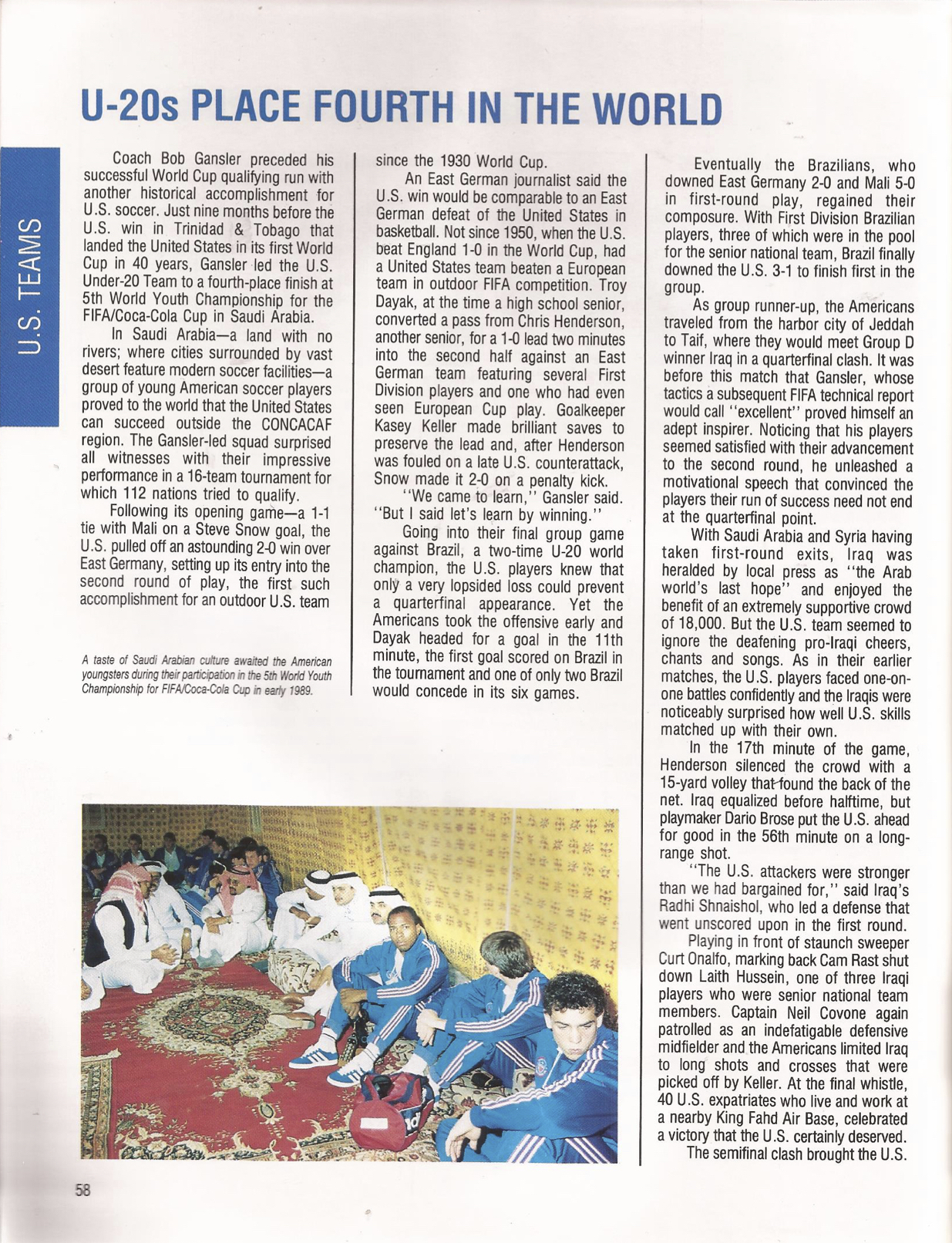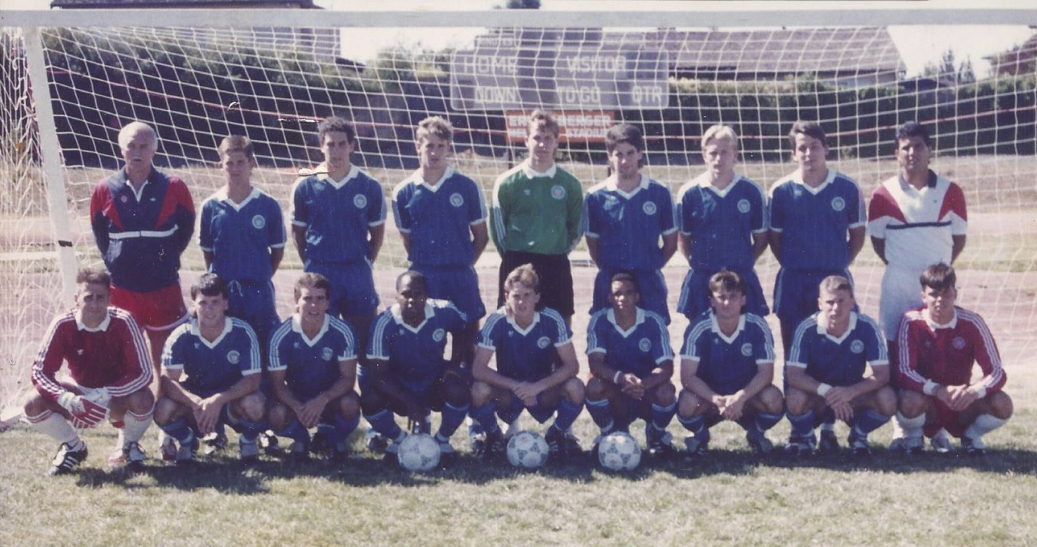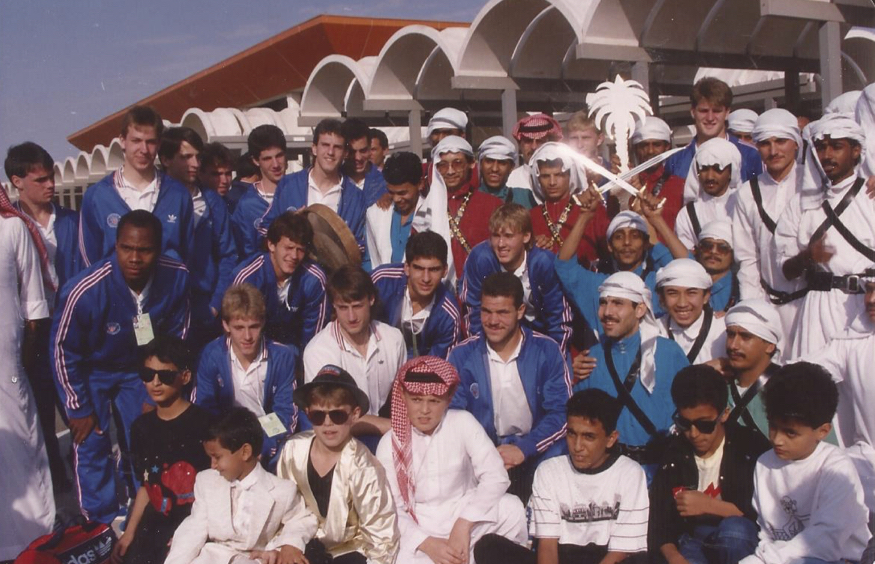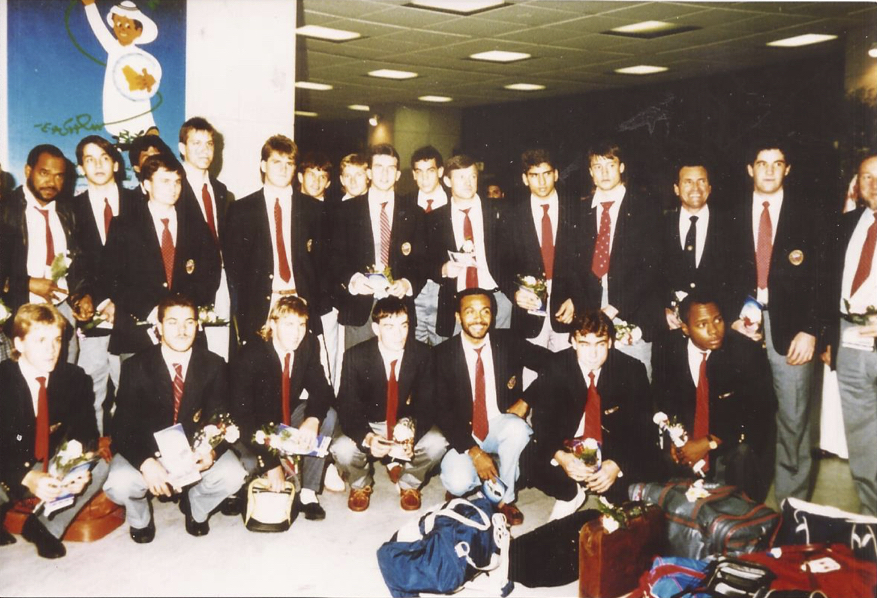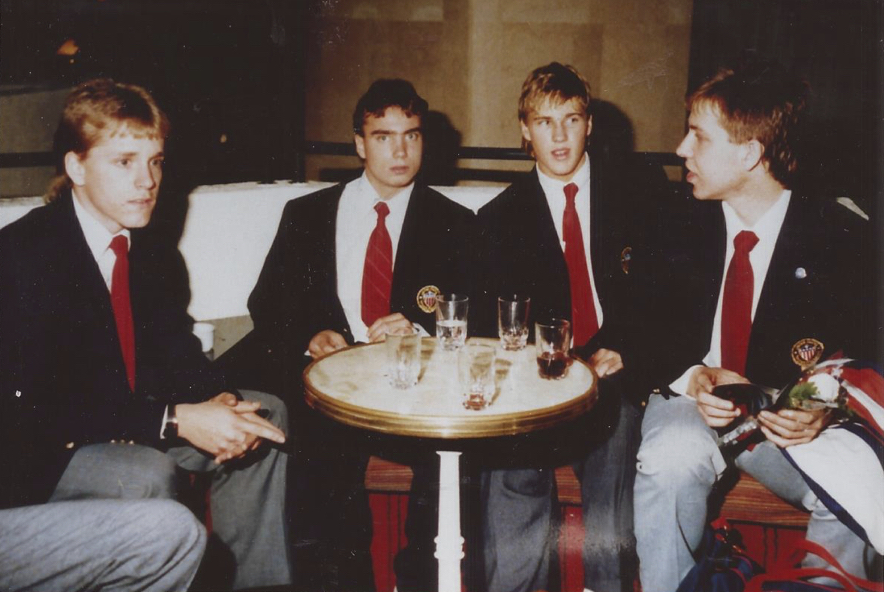Abraham Romero is a Mexican-American goalkeeper who currently plays for the Mexican club team, Pachuca. In late 2014, Romero made waves by selecting to play for Mexico over the US, despite being in the US's system for several years. The switch would play out well for Romero, who saw Mexico finish fourth at the 2015 U17 World Cup, while the US bottomed out in the group stage. Aside from a small interview with Jonathan Collazo, there has been very little news explaining the switch, leaving many to speculate on their own. Romero goes into detail about the process of picking Mexico over the US as well as his recent move from the Los Angeles Galaxy to Pachuca.
There hasn't been a ton of information explaining your decision to play for Mexico over the US. Watching you play at the U17 World Cup this last summer, several US fans couldn't help but think they really lost out in the switch. So walk us through the change from playing for the US then Mexico. Why'd you leave the US and what about Mexico's program attracted you to make the switch?
The decision to play for the Mexican National Team was one that I had to think about for quite a while. It was probably the hardest decision I had to make in my life yet. My family, which is the pillar of my life, wants me to be happy and do what I love which is to play soccer, regardless of whether it is in the United States, or Mexico. I have their full support.
The United States and its youth soccer system, as well as my coach, Ruben Messina, have allowed me to grow both personally and athletically contributing to reach the place where I am today. I have many friends in the USA. From AYSO to the club level to the USMNT. These friendships, some very strong, also made me question whether to stay in the United States. But as I continued to grow in the game, some of those friends were replaced by other players – neither better nor worse, simply other players – I began to see a decline in my game and my overall morale and I was not happy with where I was at.
I remained at the LA Galaxy for as long as I did because of the superb goalkeeper training that they offer. Ruben Messina, head of goalkeeping in the youth divisions, was able to bring out the best in me and always pushed me to improve every aspect of my game. Had it not been for him, my exit from LA Galaxy to travel abroad would have occurred a few years back when I made the switch from the US National Team to the Mexican National Team.
I made the switch because I realized that I had reached a plateau within my game as the USMNT had given me all it could and I wanted and needed more than what was being provided. I was just another player on the USMNT and my presence, or lack thereof, was not noted. If I missed a training session, there would be few people who would call to see how I was doing, a clear difference with what I see in Mexico. When I left the USMNT, I made the decision because I was completely confident about where I was going to and that it was a positive step in my soccer career and more importantly in my life. The Mexican National Team is more professional in every aspect and I was welcomed with open arms when I arrived for the first day of training for the U-15 team. The FMF showed me that they wanted me to play for the national team with their actions and the specialized treatment that they provide to each and every player. The method of training, the facilities, the interaction between player and coaches, and most importantly belonging to a group of young men that have the same desire to play professionally as I do. I was finally part of a family with players that have the potential of one day reaching the largest clubs in the world. When I first came, it was a dire change. Today, I have learned and accepted that we all strive for the same goal, play as team, and truly feel the jersey of Mexico as if I was born here, like the rest of the team. I have made my family proud and I have the backing of an entire country.
Looking back on the U17 World Cup, you had an outstanding tournament, including a 0-0 performance where you and Australia's goalkeepers really made some fantastic saves. [Watch the highlights here.] Mexico finished fourth after a 4-2 loss to Nigeria in the semi-finals. Where did you feel like Mexico succeeded in implementing their game plan and where did the team come up short?
I believe that from the start we had the desire and belief that we could go all the way to the final. But it’s not always playing great that you gets you to the later stages of a tournament as large as the World Cup. Against Argentina, our opening game, we clearly dominated the entire game and the 2-0 was generous on our part. The next two games were not as strong, but we succeeded in advancing to the next stage of the tournament. Against Chile and Ecuador we demonstrated that we were prepared to face what was ahead, but with Nigeria in the semi-final, we came up short. We reached that game playing well, implementing our game plan and having the other teams react to our plan. Against Nigeria, their first two goals were absolutely amazing and were from a different game. Two goals that you simply can’t react to because they are brilliant. We clearly missed many chances that we had within the box and we ended up paying for it later on in the game as Nigeria physically lasted the entire 90 minutes. I left the tournament content with the manner in which we played because we played our game, even though we didn’t reach our goal of bringing the Cup home.
The Galaxy have a number of good goalkeepers in the pipeline. They're clearly focused on developing goalkeepers at a young age. So how have you benefited from playing within the Galaxy's program? What are they doing right in LA?
A few years back, Sergio Batista, ex-Argentina National Team coach, said that a player like Messi could only have come out of Argentina and that Barcelona’s La Masia allowed him to achieve his full potential as a player. I could say a similar statement about the Los Angeles Galaxy. Southern California has the privilege of allowing its soccer players to train all year long because of its climate which in turn produces high-performing athletes. Couple this with LA Galaxy’s goalkeeper coach, Ruben Messina, and you have the complete package of why they are producing so many top goalkeepers. It’s not a coincidence that they have the best keepers in the nation. It’s the result of having a great infrastructure, a truly professional management team headed by Mr. Klein, superb coaching, and a mission to always succeed. LA Galaxy play to win at all times, day in and day out. No exceptions.
You've spent a lot of time with the Galaxy in their program but just recently signed with Pachuca. Tell us a little bit about how the signing came up. Were you looking actively to play in Mexico or did it more fall in your lap?
I was looking to go abroad because I had not only stunted my growth as a goalkeeper remaining in the United States, but I was beginning to decline in my abilities and confidence. I needed a new boost in my life and was looking for a good fit. I had gone to Europe and was happy with the soccer aspect, but didn’t feel that it was the best fit in terms of growing personally. If I were looking at the short term I would have stayed in Europe, but I am looking long term and making my career a long and prosperous one. Pachuca provides me with all the tools that I need to continue to grow both personally and athletically. I had spoken with some of my teammates from the national team that play for Pachuca and they all had great comments about the club. When I visited Pachuca, I saw it as an atmosphere that I could call HOME and that I would be able to recuperate my confidence that is so extremely important for a goalkeeper. I thank Pachuca for all they provide me every single day.
What's the plan in five years? Are you looking to stay in Mexico or are you eyeing another stop?
At the moment I couldn’t be happier with where I am at. The day after signing with Pachuca, I received the call up to the U-20 national team and as usual, everyone was welcoming, congratulating me, and supporting me in all that I do. Traveling to the national team is much closer than before and I live with many of my teammates from the national team at Pachuca. In the next five years, I look to continue to build confidence, grow in those aspects that the trainers here at Pachuca mark me, and make the transition from the Pachuca U-20 to the first team and win a spot within the starters. I am only eighteen years old. I take each day one at time and I couldn’t be in a better place than Pachuca at this stage of my life.




